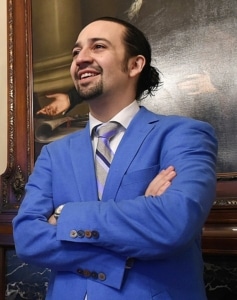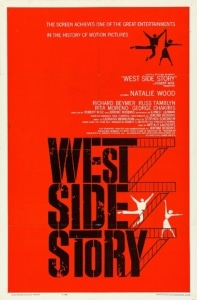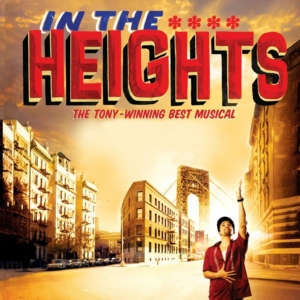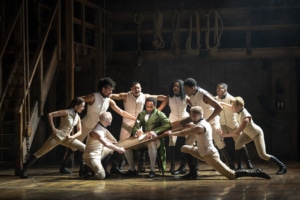DCPA NEWS CENTER
Enjoy the best stories and perspectives from the theatre world today.
Enjoy the best stories and perspectives from the theatre world today.
This article was published on May 20, 2015
NEW YORK – Lin-Manuel Miranda, composer and star of the big-buzz, Broadway-bound hip-hop musical bio Hamilton, had a message for attendees of the Broadway League conference last week:

Lin-Manuel Miranda
When life tells you it’s time to go… it’s time to go.
The Caribbean-born Alexander Hamilton had his epiphany working for a rum- and slave-trading company in New Jersey. Luis Miranda, father of the Tony-winning rapper, lyricist, and actor of In The Heights fame, had his moment watching West Side Story at a cinema in a small Puerto Rican town in 1961.
Hamilton, of course, went on to become chief aide to George Washington and took up residence on the $10 bill. Luis Miranda left Puerto Rico for New York and rose to prominence as a New York political consultant who has served in three New York City mayoral administrations. And he’s a self-professed musical theatre geek.
In a powerful keynote speech before the nation’s leading theatre presenters, producers and theatre owners on May 12 at the Hudson Theatre, Miranda spoke of the two epiphanies that everyone who finds a life in the theatre has: Transcendence and action.
Here is an excerpt from Lin-Manuel Miranda’s keynote address:
There are two moments that happen to everyone who has a life in this business: The moment where the theatre first transported us. And as Moss Hart says to George Abbott in Act One, we have the moment where we say, ‘I mean to have a life in this business.’
I want to talk about those two moments for me. I want to talk about transcendence and action.
My father was born in Vega Alta, Puerto Rico, and his moment of transcendence happened in a family way. His uncle, Ernesto Concepcion, was the founder of the Actors Guild of Puerto Rico. His first memories were of his uncle playing John Merrick in The Elephant Man. One minute he is kissing his uncle hello backstage. The next he is seeing his uncle as John Merrick in a room full of crying people. And John Merrick isn’t Puerto Rican. He is transformed. The man in front of him is both his uncle and not his uncle. And nothing is ever really the same for him again.
 My father was born in 1954; West Side Story came out in 1957. West Side Story did not send an Equity tour to Puerto Rico. My father had to see it at the movies. And back in 1961, there was just one movie theatre in Vega Alta, which was a town of 30,000 then, and it played just one movie every day at 8 o’clock.
My father was born in 1954; West Side Story came out in 1957. West Side Story did not send an Equity tour to Puerto Rico. My father had to see it at the movies. And back in 1961, there was just one movie theatre in Vega Alta, which was a town of 30,000 then, and it played just one movie every day at 8 o’clock.
There is that moment where Maria is standing over Tony, and Schrank and Krupke are going to pick up the body. She screams, “Don’t you touch him!” … and the audience laughs. But my father is in tears. He is 7 years old, and he is balling.
And why is my father the only one crying while everyone else is making fun of gang members dancing, and making fun of Natalie Wood’s accent that sounds suspiciously like Marni Nixon when she sings?
My father didn’t see any of that, and it’s because he had that early exposure to John Merrick. He had that thing that movies don’t really have that can only happen in live theatre. When we’re all in the same room together, and we all decide to believe the same moment. We see a man who is not disfigured. But he says he is disfigured, and so we believe him. And so when everyone else who is watching the movie laughs at this outburst of emotion, my father is a wreck. And it’s because he grew up watching his uncle’s shows in a live theatre.
This was my father’s moment of action. He looked around at everyone laughing at the grieving Puerto Rican widow Maria and he said, ‘I’ve got the get the (bleep) out of this town.’ And he left the Caribbean. He met my mom, he moved to New York and he never went back. And I grew up here with my sister.
My first moment of transcendence and action was seeing The Phantom of the Opera. It was my first Broadway musical. I was 12 years old, and I’ll never forget: There’s Raul banging on the door, and Christine could go over and open the door for him. But instead, she goes into the basement with The Phantom, who is playing really cool music. And I realized – on the cusp of puberty – that I am never going to be the good-looking guy at the door. I am going to be the guy in the basement playing the cool music. I identified so deeply with that guy.
My moment of action came a few years later when, for my 17th birthday, my girlfriend took me to see Rent on Broadway in its first year.
Again, I grew up loving musicals. My dad was a lifelong collector of cast albums. But I didn’t think I had a way in. I had parts in the school musicals, but I knew was never really going to get to play the Modern Major General in The Pirates of Penzance – they are going to go for the standard white guy for that part. And then I saw Rent, which took place in my city, downtown. The notion that a musical could take place today was groundbreaking to me. And that these characters were struggling with the urgencies of life and death today, and with the conflict of, “Do I pursue what I love and make a life in this business – or do I make money?” I have friends who make money, and they are really happy. But I am choosing a much harder path.
 I started writing musicals after seeing Rent. There was a moment of transcendence, and there was a moment of action.
I started writing musicals after seeing Rent. There was a moment of transcendence, and there was a moment of action.
But this goes beyond transcendence and action: It’s empathy. When you create that moment between the audience and the people onstage, you’re asking the audience to live outside of themselves. You’re asking the audience to identify with people they might not normally ordinarily identify with.
I went on vacation in 2008, and I grabbed a book at random from a bookstore – back when bookstores still existed. It was Ron Chernow’s biography of Alexander Hamilton. I grabbed it because I love reading biographies, and all I knew about Hamilton was that he died in a duel. So I thought, “This will have a good ending at least.”
So I started to read the book, and I didn’t know that Alexander Hamilton was born in the Caribbean. He was born in Nevis (in the British West Indies) and later moved to St. Croix. By the end of the second chapter, this young man has seen every manner of hardship: His father leaves. His mother dies in bed with him when he is 12 years old. He moves in with a cousin who commits suicide. He works at a trading company – they’re trading rum, spices and slaves.
And Hamilton looks around and he says, “I gotta get the (bleep) out of this town.”
He writes a poem about a hurricane that had destroyed the island of St. Croix, and that poem was used in relief efforts. People took up a collection to send him off the island to get his education. And I thought, “I know this guy.” Ron Chernow’s writing had eliminated the distance between me and the dead white guy on the $10 bill.
And as I read the book, I kept finding moments of immediacy. Parallels between his life and my father’s; and the life of any immigrant who comes to this country and creates themselves from whole cloth, and kills themselves to contribute so that their kids can have a better life. It was all of the stories of In the Heights, but even less diluted and even more concentrated into the first immigrant story.

Company in the HAMILTON National Tour. Photo by Joan Marcus
It’s also the story of the founding of our nation. Alexander Hamilton saw one Unites States instead of 13 colonies because he didn’t have a colony to claim. He didn’t have anywhere to claim except for this place that he had adopted. And that’s what Hamilton is about.
We create our own reality so much these days. You curate your Twitter feed. You unfriend your friend who has the racist or unpopular opinion off your Facebook page. We see the reality that we choose to see, and we have more power to do that than ever before. Theatre is one of the last things that eliminates that. Dick Cheney and Hillary Clinton will go see the same show with 299 other people, and they are going to have the same experience. And they are going to have to reckon with that experience.
My goal, and the goal of our creative team, was to eliminate any distance between the Founding Fathers and the fights we are still having and the struggles that are still happening as Americans. And when you go and sit in The House of Hamilton, it’s an incredibly powerful thing. It has been amazing to see that journey happen.
I will close with one more story, and it brings us back to West Side Story, because it all comes back around.
So I had the good fortune to work with Arthur Laurents and Stephen Sondheim on the last revival of West Side Story. The glorious thing about that was I got to work with the surviving creators of the show on Spanish lyrics for the Sharks. Again: Eliminating distance. And my father, who cried so hard when Maria pushed the police away, saying, “Don’t you touch him!” was the Anita to my Maria while we were writing Spanish lyrics for “A Boy Like That.” He was my thesaurus, because he came to New York at the age of 18 – the same age as the characters who were the Sharks. We got to write that together, and it was a real full-circle moment for him. The success of that tour has been a joy because, again, it creates more identification with even more people who maybe didn’t necessarily see themselves in the show.
I conclude with this: The first Equity tour to go to Puerto Rico was In the Heights. We went back to my dad’s hometown. Now, Puerto Rico is very economically depressed. We sold one performance at a time to make sure that we could sustain playing a full week there. But it all worked out.
I will never forget the review that most moved me was in the main newspaper of Puerto Rico … and I can’t not cry every time I think of it. It said: “The show is a letter from the people who left. And it is telling us that they struggled, but they did all right.”
That full-circle moment for my father and me is one of the greatest moments I have had in the theatre. That Puerto Ricans on the island saw this show about their cousins and their brothers and sisters and their sons and daughters and were able to see themselves in it means the world to me.
That’s what you do every time you mount a show. And every time you bring a student group to your show, there might be some kids who laugh at an outburst of emotion. But I promise you there is a kid balling his eyes out. He is not only being transported … but he’s saying to himself, “I need to make a life in this business.”
